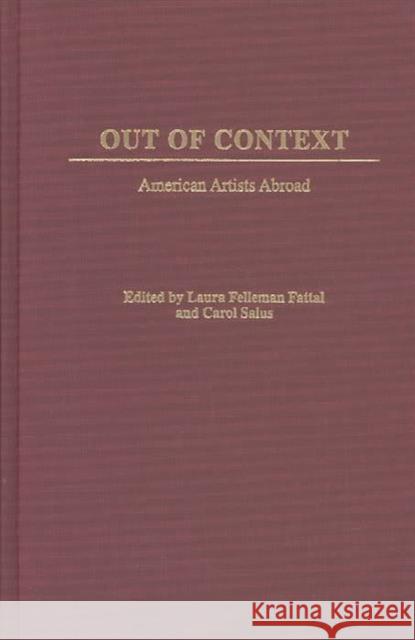Out of Context: American Artists Abroad » książka
Out of Context: American Artists Abroad
ISBN-13: 9780313316494 / Angielski / Twarda / 2004 / 216 str.
Regardless of their expatriate residence, 19th- and 20th-century American artists have viewed their destinies as linked inextricably to that of the United States. Antithetical to progressive democratic ideals has been the embedded class structure found by expatriate artists in European and Latin American communities, and as such, new interpretive approaches to public and private issues such as society reform and racial and ethnic equality provided the crucible for many American artists. In this way, American expatriate artists have been cultural arbiters between various histories and legacies within and outside the United States. This collection of essays by noted art history scholars explores the experiences and legacies of these artists, offering a depiction of their art as being informed both by native traditions and American individualism. Though often a subject of literary studies, expatriatism has too long been overlooked in the visual arts; this excellent volume serves both as a corrective and as a much-needed addition to current scholarship.
We see these combinations, these paradoxes, in Mary Cassatt's Spanish figures; in the Impressionist ties of the American colonies at Grez near the Barbizon forest; in Savage's allegorical subjects; in Francis's painterly allusions; in Sargent's guarded approaches to his foreign subjects; in Klumpke's feminism; in Whistler's innovations. Arguably, expatriate artists have delighted in an explicit marginality-one that, in turn, creates an inchoate definition of American art. Though often a subject of literary studies, expatriatism has too long been overlooked in the visual arts; this excellent volume serves both as a corrective and as a much-needed addition to current scholarship.











